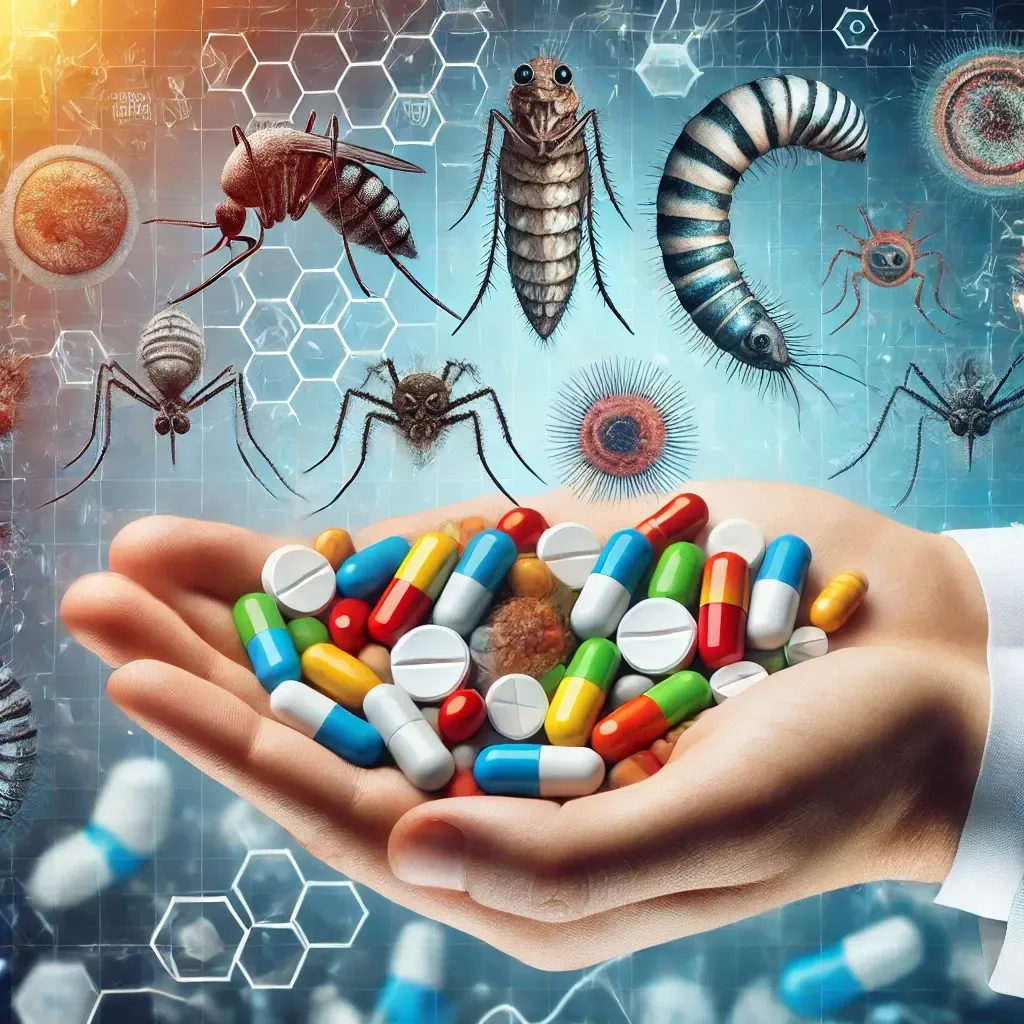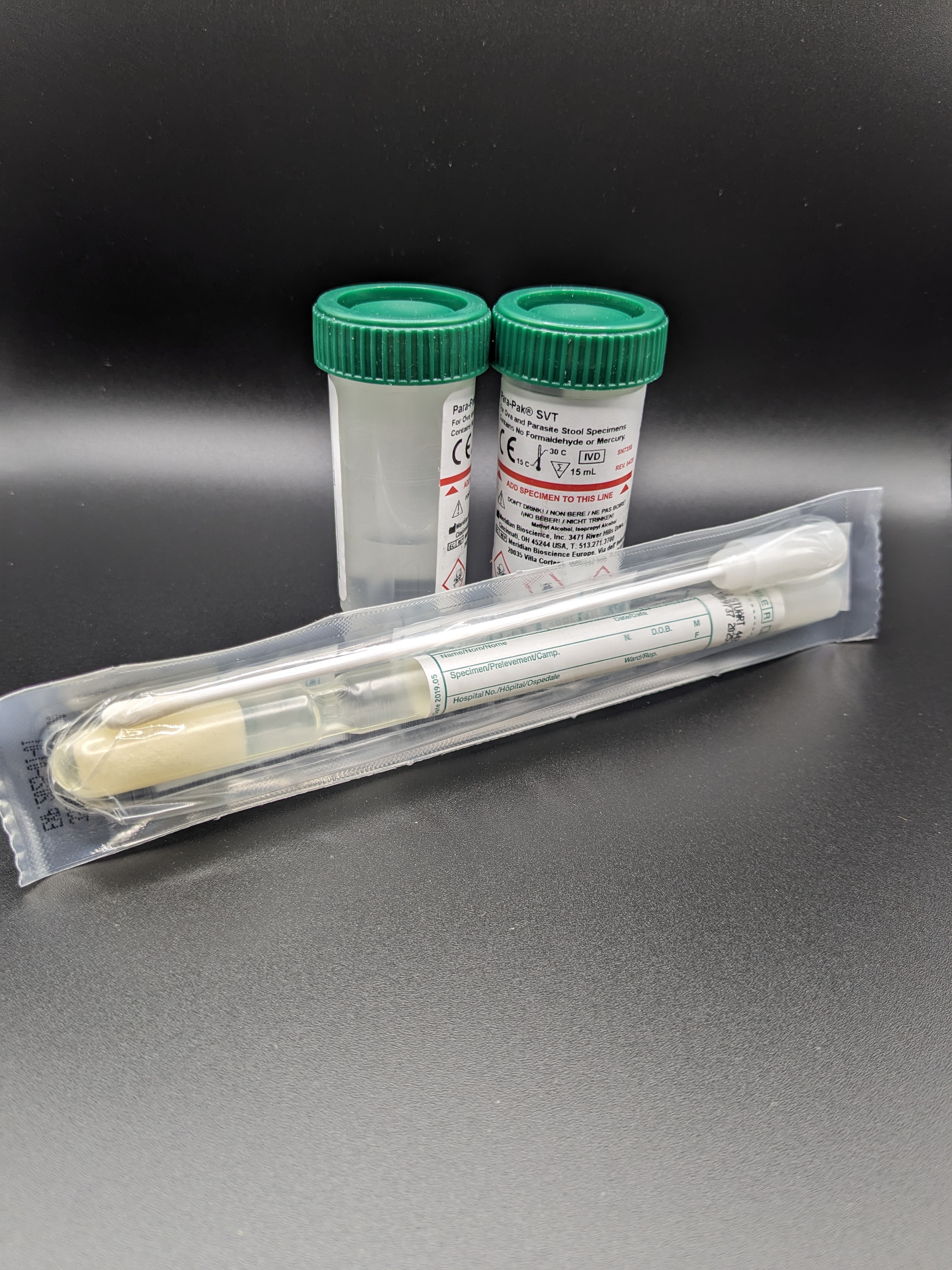
Latest Blog Articles

Drug Resistance and Development
Drug Resistance and Development in Parasitology
The fight against parasitic diseases is a relentless battle that requires constant innovation and adaptation. One of the most pressing challenges in this field is drug resistance. Parasites, much like bacteria and viruses, have shown a remarkable ability to develop resistance to the drugs designed to eliminate them. This resistance poses a significant threat to global health, particularly in regions where parasitic diseases are endemic. Understanding and addressing drug resistance is crucial for the continued effectiveness of antiparasitic therapies. This post delves into the complexities of antiparasitic resistance and the development of novel drugs, as well as the promising strategy of repurposing existing drugs.
Antiparasitic Resistance
Mechanisms of Resistance: Parasites develop resistance through various mechanisms, making it essential to monitor and understand these processes. Some common mechanisms include:
Genetic Mutations: Changes in the parasite's genetic code can alter the structure of target molecules, rendering drugs ineffective. For example, mutations in the gene encoding the enzyme dihydrofolate reductase (DHFR) in Plasmodium species (malaria parasites) lead to resistance against antifolate drugs.
Drug Efflux Pumps: Some parasites develop efflux pumps that expel the drug from their cells before it can reach its target. This mechanism is observed in Plasmodium falciparum, where increased expression of certain transporters is linked to chloroquine resistance.
Metabolic Bypass: Parasites may develop alternative metabolic pathways that bypass the drug's target, effectively neutralizing its impact. This form of resistance is more complex and harder to counteract.
Enzymatic Degradation: Certain parasites produce enzymes that degrade the drug, rendering it inactive. For instance, some helminths (worms) produce enzymes that break down benzimidazole drugs.
Monitoring Resistance: Continuous surveillance is critical to detect and respond to drug resistance. Monitoring involves:
Molecular Diagnostics: Identifying genetic markers associated with resistance through polymerase chain reaction (PCR) and sequencing techniques.
In Vitro Assays: Testing parasites' susceptibility to drugs in laboratory settings to detect resistance patterns.
Field Studies: Collecting and analyzing samples from affected populations to monitor the prevalence and spread of resistance.
Development of Novel Antiparasitic Drugs: To combat resistance, there is an ongoing need to develop new drugs. The process involves:
Target Identification: Using genomic and proteomic studies to identify new molecular targets within the parasite that can be exploited for drug development.
Drug Design and Screening: Employing high-throughput screening methods to test thousands of compounds for activity against parasites. Advances in computational chemistry and molecular modeling aid in designing more effective drugs.
Preclinical and Clinical Trials: Conducting rigorous testing to ensure safety and efficacy in animal models and human trials. This phase is crucial to ascertain the therapeutic potential of new drugs.
Repurposing Existing Drugs
Advantages of Drug Repurposing: Repurposing existing drugs for new antiparasitic applications offers several advantages:
Reduced Development Time: Existing drugs have already undergone extensive testing for safety and efficacy, significantly shortening the time required for development and approval.
Cost-Effectiveness: Repurposing reduces the financial burden associated with drug development, making it an attractive strategy, especially for diseases affecting low-income regions.
Known Safety Profiles: The safety profiles of existing drugs are well-documented, reducing the risk of adverse effects in new applications.
Examples of Repurposed Drugs:
Ivermectin: Originally developed for treating parasitic worms, ivermectin has shown effectiveness against a variety of parasites, including lice and scabies. Recent studies also suggest its potential against malaria and even some viral infections.
Artemisinin: Used primarily for malaria, artemisinin and its derivatives are being investigated for efficacy against other parasitic infections, such as schistosomiasis and leishmaniasis.
Chloroquine: Primarily an antimalarial drug, chloroquine has been explored for its effects on amebiasis and other protozoan infections. Despite resistance issues, it remains a valuable case study in drug repurposing.
Challenges and Considerations: While repurposing is promising, it comes with challenges:
Differing Pharmacokinetics: Drugs may behave differently in the body when used against different parasites, requiring adjustments in dosing and administration.
Resistance Transfer: There is a risk that parasites resistant to the original use of the drug might also be resistant to its new application, limiting effectiveness.
Regulatory Hurdles: Despite existing safety data, regulatory approval for new uses still requires thorough evaluation to meet health standards.
Conclusion
The battle against parasitic diseases is complex and multifaceted. Drug resistance remains a formidable challenge, necessitating continuous monitoring and innovation in drug development. The repurposing of existing drugs presents a pragmatic and efficient approach, potentially offering new weapons in the fight against parasitic infections. As research advances, a combination of novel drug development and strategic repurposing will be crucial to staying ahead of evolving parasites and ensuring effective treatments for affected populations worldwide.
Discover What's Really Going On Inside Your Gut!
Experiencing stomach troubles? Our Full GI Panel Test can help! Identify bacteria, parasites, and fungi with state-of-the-art accuracy. Quick, non-invasive, and thoroughly analyzed by experts.
Take the first step towards better gastrointestinal health today!
Feel Refreshed and Balanced with Freedom Cleanse Restore!
Reset your digestive system and boost your overall well-being with our Freedom Cleanse Restore supplement. Designed to support detoxification, promote digestive health, and enhance nutrient absorption.
Reclaim your health—experience the benefits today!
Contact Information
11445 E. Via Linda, #2-419
Scottsdale, Arizona 85259 USA
1-480-767-2522
Hours: 7:30am to 4:00pm
Monday through Thursday.
Hours: 7:30am to 1:00pm on Friday.
Closed Saturday - Sunday.



